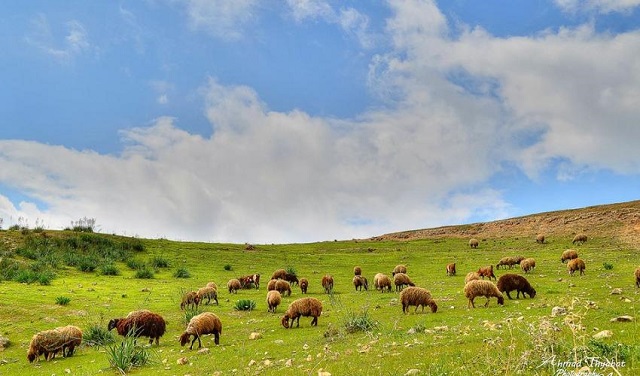
The Sunday News

Mhlupheki Dube
THE dry season is upon us and this is the time when every livestock farmer agonises through a painful three months until the rains fall and the veld begins to regenerate.
It is the time when livestock farmers endure the pain of observing their animals wasting away daily and in some cases dying due to loss of condition.
Despite receiving a lot of rains last summer season, it is my contention that our livestock will still feel the pressure of deteriorating rangelands and that coupled with far and wide drinking points.
Is it ironic that our rivers were in flood for most of the rainy season and the social media was awash with video clips of vehicles being washed away by flooded rivers but all we have to show for it now are very dry river beds with people and livestock digging from the river beds for drinking water.
This is how inefficient our water harvesting technologies are. Animals are now moving for kilometres seeking water to drink.
Questions we need to ask are, why are the rangelands deteriorating very fast regardless of the amount of rainfall received that year?
Are we overstocked or are we poorly managing our rangelands? My take is that we are poorly managing our rangelands largely because we do not have an institution or management unit whose singular mandate is to oversee the proper utilisation and management of our rangelands.
The lack of an institution or institutions solely responsible for managing rangelands in Zimbabwe is also observed by Onalenna Gwate in his journal article published in 2014. The range-land is the cheapest, largest and primary source of feed for any livestock farmer and hence it has to be properly managed, not this haphazard approach.
This belief in the natural perpetuity and longevity of the rangelands with no deliberate interventions is not just stone agedly naïve but patently negligent. How does it happen that even in Government, extension services responsible for livestock rangeland management is a very silent component with no active programmes save for half hearted donor inspired fodder production efforts?
We therefore need a national rangelands co-ordinating unit as a country, tasked with managing and rejuvenating our rangelands. Such a structure exists in other countries. This unit can be then housed in such offices as the District Administrator’s office in similar fashion to the Civil Protection Unit.
The role of the unit will therefore be that of designing and co-ordinating the implementation of rangeland management practices that will not only promote the sustainable utilisation of our rangelands but also the rejuvenation of degraded rangelands.
There are excellent rangeland utilisation and rejuvenation models such as the one being championed by the Africa Centre for Holistic Management in the country but they are not being replicated in many areas largely because of the absence of a rangeland co-ordinating unit.
I am quite sure that there are also excellent rangeland utilisation models from trials in our research institutions and the missing link is how to cascade them down to the community level. I therefore wish to passionately urge for the establishment of a rangeland management unit whose primary and singular objective will be to champion sustainable utilisation of finite rangelands against an exponentially growing national population.
In some areas especially in Matabeleland North, the threat to rangelands is not overstocking or the increase in human population but just the failure to strike a balance between woody species (trees) and the grass. Because of the sustained campaigns over the years against cutting down trees by the relevant authorities it has resulted in very dense thickets which can hardly sustain undergrowth (grass) and hence severely compromising on the carrying capacity of these rangelands. We therefore need to reconfigure our settings in as far as preserving trees is concerned such that we strike a balance between conserving trees and preserving rangelands so that we do not become so linear in our environmental conservation to the extent of nearly driving livestock farmers into extinction in other areas.
A national rangeland coordinating unit supported by proper legislative frame work should be able to help institutionalise rangeland management in the relevant Government extension arms. Uyabonga umntakaMaKhumalo.
Feedback [email protected]/ cell 0772851275.



